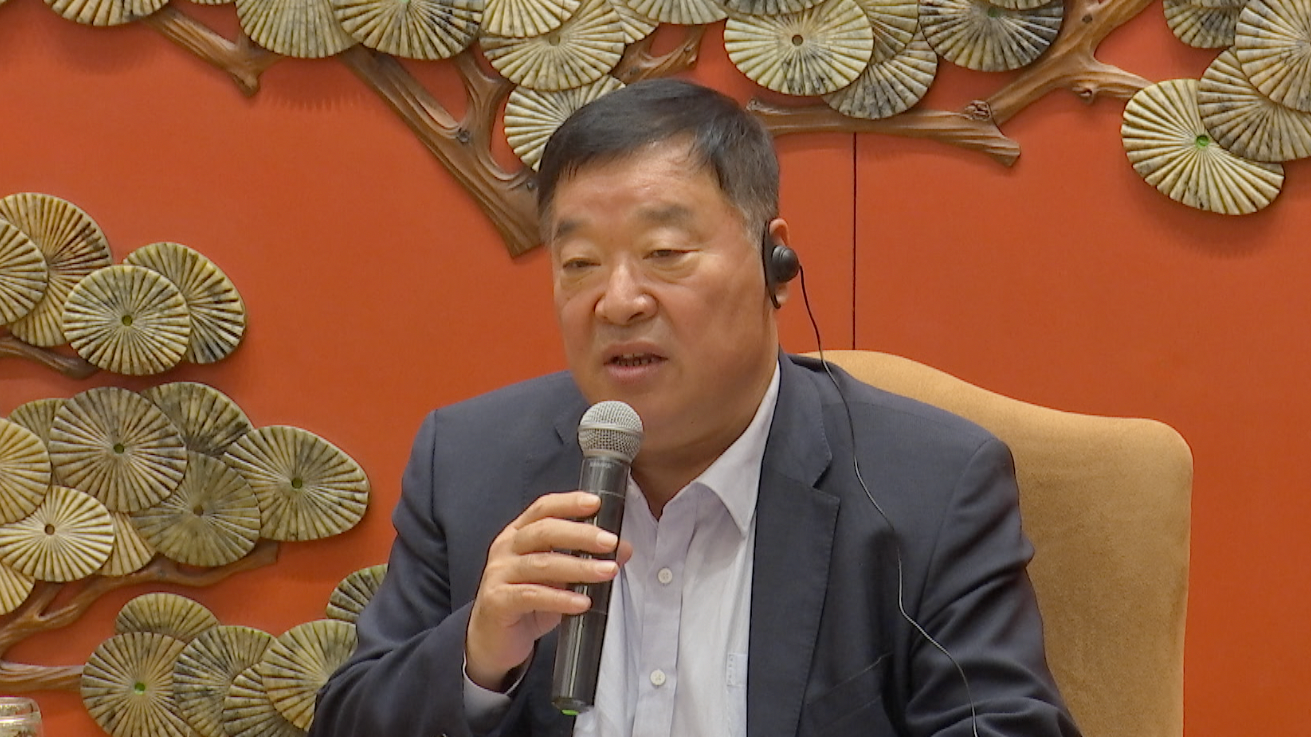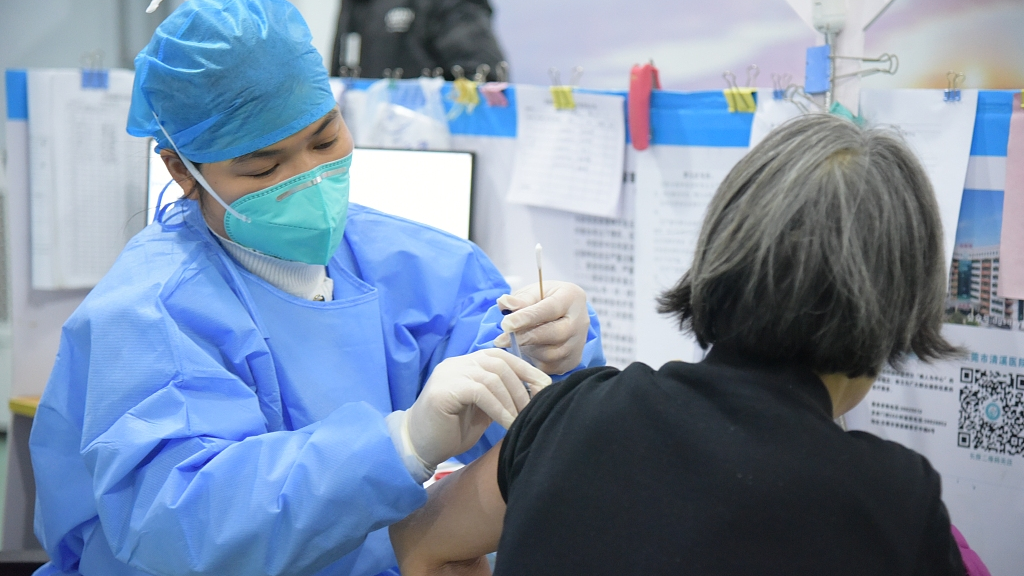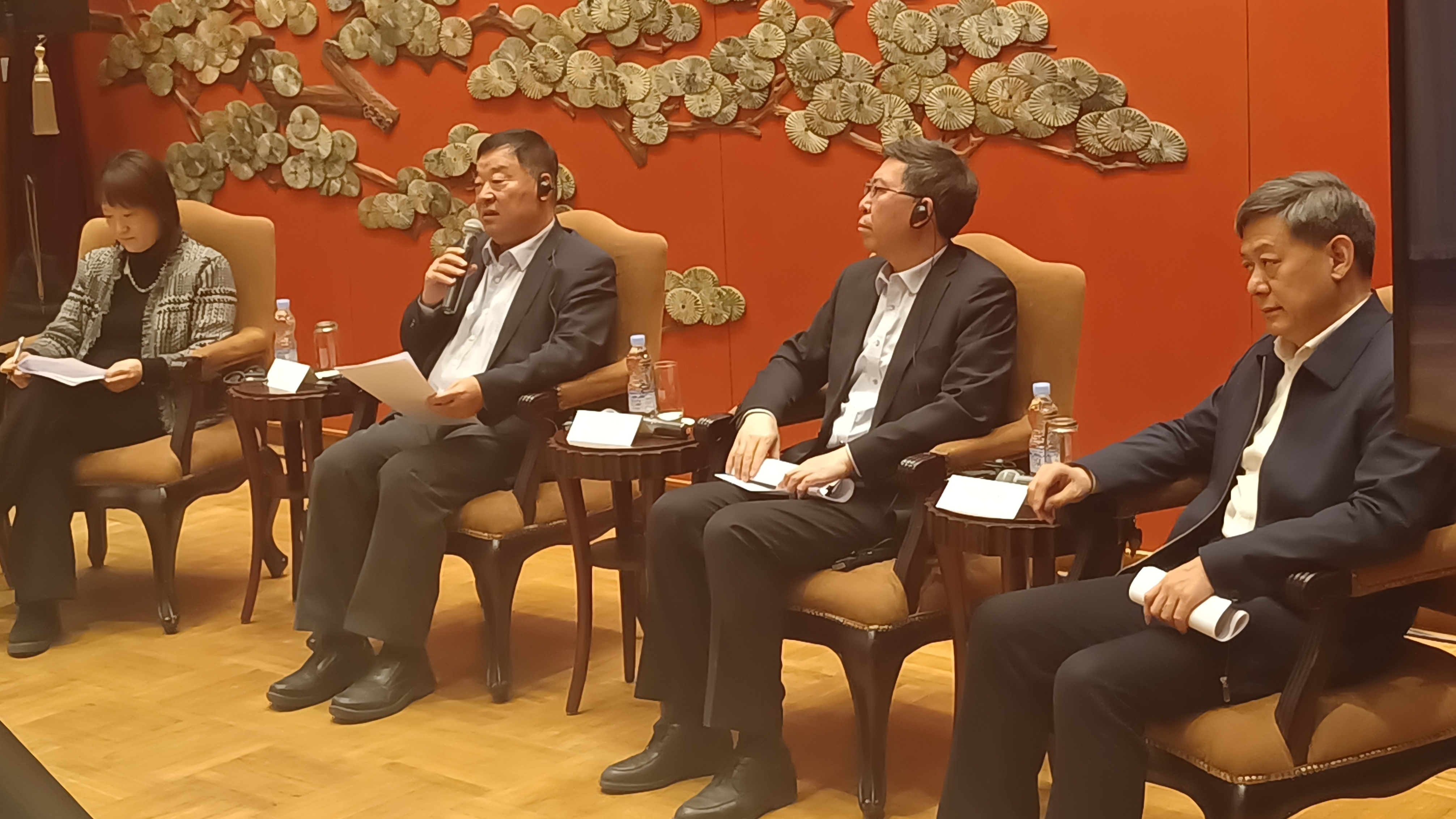
Liang Wannian speaks at a meeting organized by China Public Diplomacy Association in Beijing, January 11, 2023. /CGTN
Liang Wannian speaks at a meeting organized by China Public Diplomacy Association in Beijing, January 11, 2023. /CGTN
As China downgrades its COVID-19 response, its leading public health experts say they believe the worst is over for the country of 1.4 billion people.
On Wednesday, in a meeting organized by China Public Diplomacy Association, Doctor Liang Wannian, the head of the COVID-19 response panel under the National Health Commission, with the Vanke School of Public Health at Tsinghua University, made the assessment.
Liang said, "For the overall situation, the first wave of infections is decreasing now in China; the number of severe cases is plateauing. It's fair to say we have weathered the worst of this round."
"This shows the strength of our medical system. But it is still an extremely tense period, including for vulnerable groups and rural areas."
The prevalent variants in China are BF2, and BF7, said Liang, adding that while China is closely watching the XBB variant, there is no indication yet that it would take over and become dominant.

An elderly woman receives a COVID-19 jab in Dongguan City, south China's Guangdong Province, December 19, 2022. /CFP
An elderly woman receives a COVID-19 jab in Dongguan City, south China's Guangdong Province, December 19, 2022. /CFP
Wang Guiqiang, head of the infectious disease department at Peking University's First Hospital, also said Beijing passed through the worst of this round of infections.
Wang said new measures are being implemented to help protect vulnerable groups, especially when it comes to the elderly.
"Community-based healthcare staff are monitoring seniors for early signs of infection. Oxygen generators are gradually being installed in community clinics, and doctors are working to distribute antiviral medications as soon as they are needed," he said.
Wang said there is a range of antiviral medications, among them Paxlovid. He said while Paxlovid is currently in high demand, it could soon be produced domestically.
Both Liang and Wang said it's too early to decide the full impact of the recent wave of infections.

Experts at the meeting organized by China Public Diplomacy Association in Beijing, January 11, 2023. /CGTN
Experts at the meeting organized by China Public Diplomacy Association in Beijing, January 11, 2023. /CGTN
Noting that there is no agreed way to count the COVID-19 deaths in the world and that each country counts in their own way, Liang said he thinks it would only be logical to count after the COVID-19 epidemic is over, as the situation is changing all the time.
"A more accurate way of evaluation is excess mobility, and this would only come later, " he said.
Liang also described China's overall COVID-19 response as flexible and effective.
"In the last three years, China's strategies against COVID-19 have always been responsive to current situations and scientific. The measures are being improved all the time, and we always work proactively," Liang said, adding that the winter announcements of new, relaxed management measures are the result of all-around consideration.
Experts at the meeting also said vaccination remains the best line of defense, as the country is currently ramping up new vaccination campaigns for vulnerable groups, especially medical staff and the elderly.